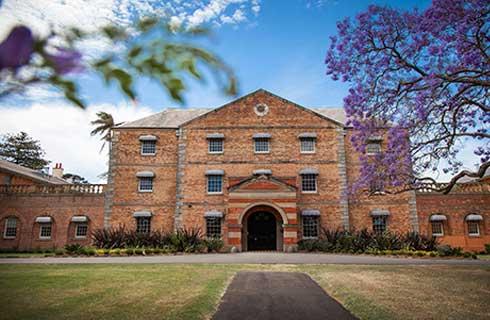Master of Science in Statistics - Computational Life Sciences

学历文凭
Masters Degree

专业院系
Department of Statistics

开学时间

课程时长

课程学费

国际学生入学条件
IDP—雅思考试联合主办方

雅思考试总分
8.0
- 雅思总分:8
- 托福网考总分:80
- 托福笔试总分:160
- 其他语言考试:NA
CRICOS代码:
申请截止日期: 请与IDP联系 以获取详细信息。
课程简介
相关申请
 预科
预科 奖学金
奖学金 实习机会
实习机会 在校学习
在校学习 跨境学习
跨境学习 校园授课-线上开始
校园授课-线上开始 在线/远程学习
在线/远程学习
开学时间&学费
学费信息仅供参考,请与IDP联系以获取详细信息
| 开学时间 | 时长 | 学费 | 地点 |
|---|
学校排名

世界排名64
数据源:
泰晤士高等教育世界大学排名
本校相关课程

Doctor of Philosophy in Statistics
学历文凭
Ph.D.
开学日期
课程费用总额


Doctor of Philosophy in Mathematics
学历文凭
Ph.D.
开学日期
课程费用总额


Doctor of Philosophy in Computer Science
学历文凭
Ph.D.
开学日期
课程费用总额


Doctor of Philosophy in Biological Sciences
学历文凭
Ph.D.
开学日期
课程费用总额


Doctor of Philosophy in Management - Organizational Behavior and Human Resource Management
学历文凭
Ph.D.
开学日期
课程费用总额


Doctor of Philosophy in Management - Strategic Management
学历文凭
Ph.D.
开学日期
课程费用总额

其他相关课程

统计学哲学博士
 达尔豪斯大学
达尔豪斯大学学历文凭
Ph.D.
开学日期
课程费用总额


统计学理学硕士
 达尔豪斯大学
达尔豪斯大学学历文凭
Masters Degree
开学日期
课程费用总额


统计学理学学士
 达尔豪斯大学
达尔豪斯大学学历文凭
Bachelor Degree
开学日期
课程费用总额


统计学文学士
 达尔豪斯大学
达尔豪斯大学学历文凭
Bachelor Degree
开学日期
课程费用总额


统计学理学学士
 温尼伯大学
温尼伯大学学历文凭
Bachelor Degree
开学日期
课程费用总额


统计学文学士
 温尼伯大学
温尼伯大学学历文凭
Bachelor Degree
开学日期
课程费用总额










 美国
美国
